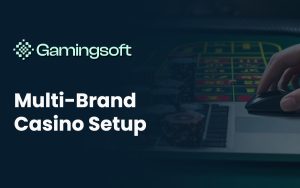If you’ve ever compared odds between a traditional bookmaker and a betting exchange like Betfair, you’ve probably noticed one thing—exchange odds are almost always better. But why is that? How can exchanges consistently offer higher returns to bettors without going out of business?
The answer lies in how betting exchanges work, and how they completely change the balance of power in online betting. Let’s break it down step-by-step in simple terms.

Bookmakers vs. Exchanges
Traditional sportsbooks and betting exchanges operate in very different ways:
| Bookmaker | Betting Exchange |
| Sets the odds | Users set the odds |
| Takes bets against the player | Matches players against each other |
| Builds a profit margin into every bet | Charges only a small commission on winnings |
| Has a house edge | Has no house edge |
In short:
- A bookmaker controls the market and profits from the margin.
- A betting exchange hosts the market and profits from commission.
This difference is exactly why exchange odds tend to be 5–10% better.
The “House Margin” Explained
When you bet with a bookmaker, you’re paying for their built-in profit margin—sometimes called the overround.
Example:
In a simple two-outcome event (like tennis):
| Player | True odds | Bookmaker odds |
| Player A | 2.0 | 1.91 |
| Player B | 2.0 | 1.91 |
If you add those bookmaker probabilities together (1/1.91 + 1/1.91), you get 104.7%—not 100%.
That extra 4.7% is the bookmaker’s edge—their guaranteed profit over time.
On an exchange, there’s no overround because users provide the odds themselves.
If two people are willing to back and lay at fair prices, the total market equals 100% (or very close).
Market Efficiency = Better Prices
Exchanges operate more like financial markets than casinos.
Thousands of users compete to offer the best prices—backers want higher odds, layers want lower odds.
This constant competition drives odds to become more efficient and fair, reflecting the real probability of outcomes.
So instead of betting against a margin, you’re betting in a transparent, competitive market.
Example:
- On a bookmaker, you might see odds of 2.0 for Manchester United.
- On an exchange, users might be backing at 2.08 and laying at 2.1.
- You get to choose the best available price—or even offer your own.
That’s why experienced bettors, traders, and professionals prefer exchanges.
Lower Operating Costs = Fairer Odds
Bookmakers must:
- Manage risk
- Balance bets across outcomes
- Guarantee payouts
- Spend heavily on marketing
To cover those costs, they bake a margin into every bet.
Exchanges don’t do that. They simply:
- Match bets
- Take a small commission (usually 2–5%) from the winner’s profit
That means less overhead—and more of your winnings stay with you.
You’re Betting Against People, Not the House
In a traditional sportsbook, your success is the bookmaker’s loss.
They have every reason to limit sharp players, adjust odds quickly, and protect their margin.
In an exchange, your success is another player’s loss, not the platform’s.
The exchange doesn’t care who wins—it just takes its small fee from the profit.
This makes it a level playing field where everyone, from casual bettors to professional traders, can compete fairly.
How Liquidity Improves Odds
Another big reason why exchanges offer better odds is liquidity—the total amount of money available in the market.
The more people trading, the tighter the spreads between back and lay prices.
This means you can often:
- Back at higher odds
- Lay at lower odds
- Exit positions more easily
Large, active markets—like football or horse racing—often have near-perfect odds efficiency, where the prices are as fair as mathematically possible.
What About the Commission?
Most exchanges charge a 2–5% commission on your net winnings for each market.
Even after that fee, you usually still get better value than with a bookmaker.
Example:
- You back a horse at 4.0 on an exchange (vs. 3.8 at a bookmaker).
- Your $10 stake wins $30 profit.
- After 5% commission, you keep $28.50.
- Still higher than the $28 you’d get at the bookmaker.
So even with fees included, exchange odds win.
Why This Matters for iGaming Operators
From a B2B perspective, understanding why exchanges offer better odds is key to product innovation.
Operators and platform providers are increasingly exploring exchange-style mechanics—because players today demand:
- Transparency (no hidden margins)
- Control (set their own odds)
- Better value (higher returns)
By integrating exchange technology or hybrid models, iGaming companies can attract high-value bettors and build trust in a market where fairness matters.
Conclusion
Betting exchanges offer better odds because they remove the bookmaker’s margin and let the market decide fair prices.
No house edge, no inflated lines—just real value based on supply, demand, and smart trading.
About Gamingsoft
Gamingsoft is a leading provider of online casino solutions, offering a comprehensive suite of services, including a white-label solution, API integration, payment solutions, game development, and more, to iGaming operators worldwide. With over years of experience, Gamingsoft has earned a reputation for delivering innovative and reliable solutions, helping clients succeed in the competitive iGaming industry.






